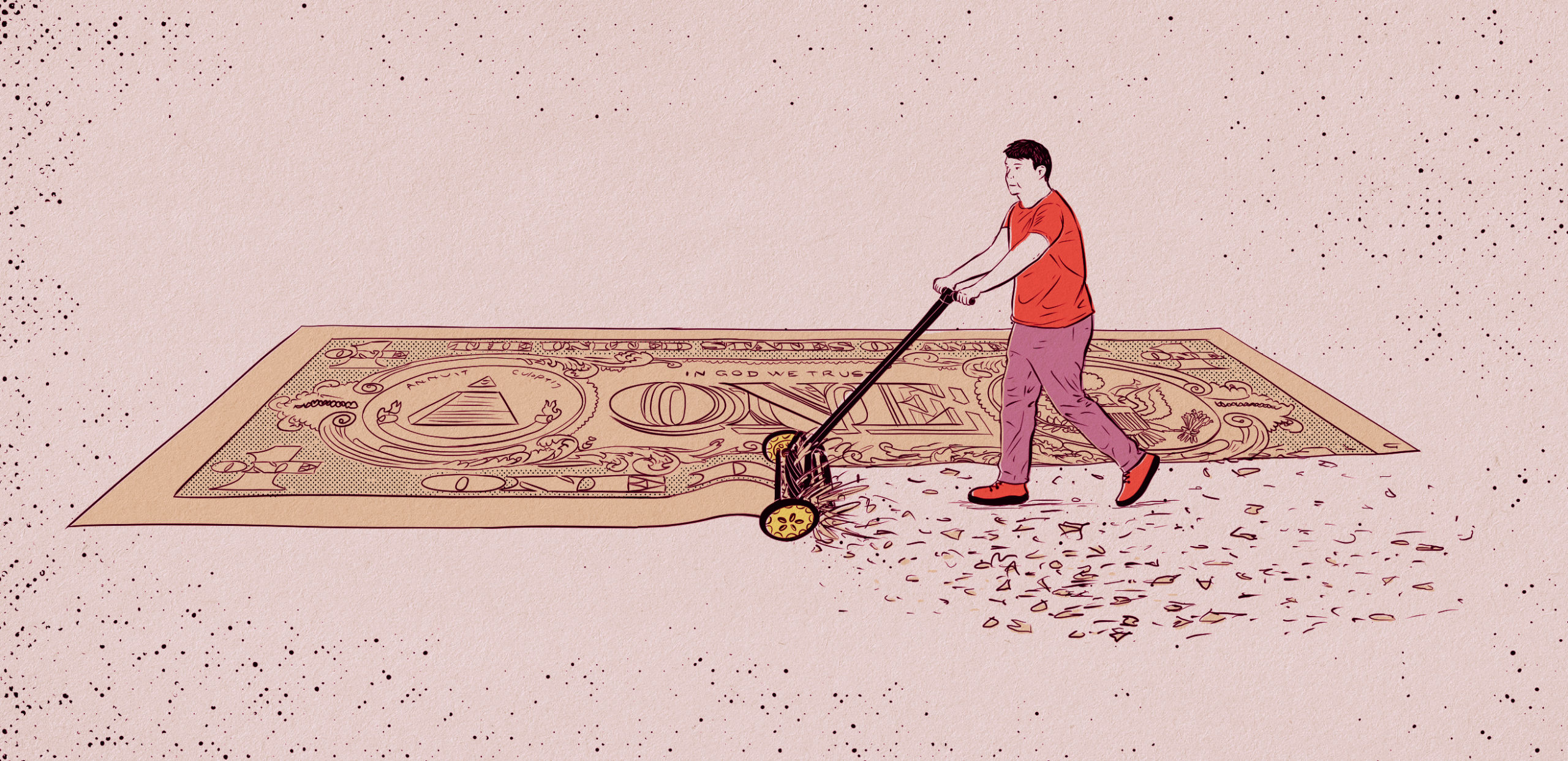 Scroll
Scroll
Theories
September 1st, 2020
What does it mean to be 'bad with money'?
When I was twenty-five, I fell in love with a college boy. He was frugal, despite growing up rich, while I spent money faster than I could make it, despite growing up poor. This vexed and confused him. My parents, after all, had given me a roadmap to misfortune, which seemed to him as good as a roadmap to its opposite. What else was a childhood surrounded by poverty, addiction, and crime if not a lesson in how not to live?
One day, my boyfriend came home from class with his own lesson to impart: I was bad with money, a professor had explained to him, because I’d grown up in “a culture of poverty,” absorbing values and behaviors which would forever thwart my escape from the underclass. I’d been aware from a young age what kind of statistics were associated with being an indigenous Alaskan—more likely to suffer sexual abuse or commit suicide—but I’d never before had my life experience reduced to theory. Still, I was a high school dropout and he was a college boy, and I had to admit that he had a point.
It isn’t quite as simple as being bad with money. Every so often, I’m gripped by an urge to spend frivolously. Deprivation breeds irrational appetites, but there’s something deeper behind these urges of mine; it sometimes feels like I’m chasing a gambler’s high by ratcheting up the stakes of my own life and betting everything on the belief that I’ll somehow come through alright. How I spend the money is almost beside the point.
Once, after losing a job, I spent everything I had on a ten-day trip to Iceland, unsure of how I’d pay my rent after I got home. Then there was the time I bought an iPad, used it for a week, and sold it for grocery money at a price much less than I’d paid. Occasionally I’d buy some rare, out-of-print record or book, which would mock me from a shelf while I lived off instant ramen noodles until my next paycheck. For years I put this kind of behavior down to an excess of the working class joie de vivre captured in Les Blank’s 1971 film Spend It All. But the subjects of Blank’s documentary “work like hell to make some money, then spend it all having a good time,” and sometimes I have no fun at all spending money. What I do feel, invariably, is present. I am, for the duration of the spree, fully engaged with the world around me.
Growing up in poverty is like growing old and dying once each month. In my house there was a smothering malaise that deepened with each passing day as the money and food stamps dwindled; by the end of the month, when the cupboards were empty of everything except one mysterious can of pumpkin pie mix, we were reduced to the role of spectators in our own lives. When paychecks and food stamps arrived on the first of the month, it’s wasn’t just a relief. It was like coming up for air. More than having enough food to eat, the first of the month meant a week of booze and cigarettes for mom, and Doritos and Coke for us kids. It meant two weeks of sleep without worry. It meant three weeks without hunger. It meant, for however long we could hold out, a reprieve from tears, fighting, and shame.
The residue of these experiences is difficult to explain. Once in a while, when I come into a bit of money, I find myself wanting to celebrate by buying something I otherwise would not. It’s a natural enough urge, I think. But it doesn’t always end there. What begins as a celebratory impulse sometimes becomes something more nihilistic—an overwhelming desire to spend relentlessly until I am free of my last dollar. While I am spending the money, I feel completely engaged with life, like a gambler watching his horse as it makes its way around the track; once I am broke, I feel briefly elated. Then I feel nothing.
When I was thirty, I earned my G.E.D., then I became a college boy, too. I lived abroad, went to graduate school, and learned many theories, none of which clarified my relationship with money. After graduate school, I was hired to work in a newsroom in Tokyo, which I celebrated by spending twelve hundred dollars on a pair of dress shoes. Then I asked my new boss if I could borrow enough money for my flight to Japan.
This series was generously supported by the Economic Hardship Reporting Project.
More Reads
Close Read: Thiago Rodrigues-Oliveira, et al.
Veronique Greenwood
Take the W: Entry Points
Katie Heindl
Credit: Creative Commons, johnmac612, CC BY-SA 2.0. When I started writing “seriously” about basketball eight years ago (before that, I wrote NBA fan fiction for David ...




